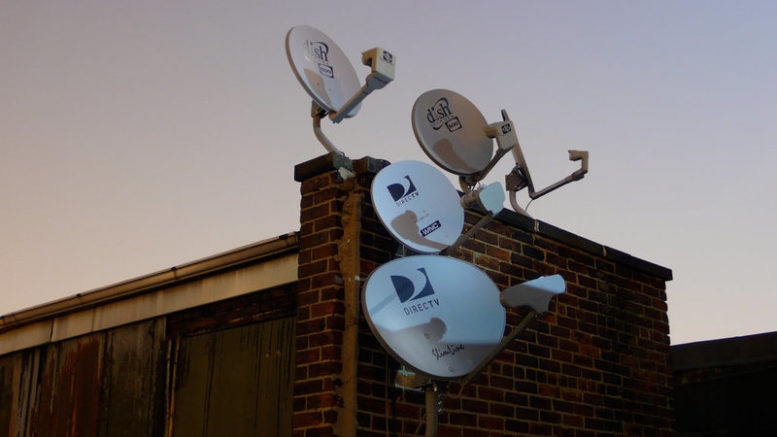Of all the rumors I’ve heard in the last 15 years, none of them has stuck around like the one about DIRECTV and DISH. There are a lot of folks who are just convinced that the two companies will eventually merge. Even DISH’s Charlie Ergen says he thinks it will happen. Personally, I thought I answered this question pretty well in an article from nine years ago, but the rumor just never seems to go away. So, every few years I put out a new essay on why I think it’s just never gonna happen.
First, the opposing viewpoint
I suppose I owe it to you, dear viewers, to try to take the opposite viewpoint. Let me do my best to say why it’s possible that the two companies could merge.
First of all, there’s the idea that both companies are smaller than they were a decade ago. The peak for satellite subscriptions was about 2012, when roughly 39 million people subscribed to satellite TV. Today, that number is down to about 25 million. That’s the same number of subscribers that just DIRECTV had at its peak. So, the cost of swapping out all the equipment is going to be lower, it just has to be.
I think there’s some urgency on the DISH side as they haven’t invested as heavily in new satellites as DIRECTV has. It’s hard to know what the time frame is, but at some point there will need to be some new launches from DISH or they will lose capacity.
I also think that it would be easier to get regulatory approval for this sort of thing now than it was in the past. Pay TV has some competition in streaming, and the companies involved aren’t as big. It wouldn’t be easy, especially in light of how AT&T’s merger spree of the last five years worked out for them. But it’s not impossible.
Why it’s still not gonna happen
Here in 2022, the first thing you have to consider is that AT&T still owns 70% of DIRECTV, even though they don’t have operational control of it. They could spin DIRECTV off completely as part of this deal, but it would slow things down so much that nothing would happen this year. Considering that they’ve reduced their stakes in DIRECTV and Warner Media, I don’t think they’d want to take on additional partners by associating with DISH so thoroughly.
There’s also something that most people don’t consider. DIRECTV and DISH aren’t just about satellite TV. DIRECTV operates a streaming service and so does DISH. The two services, DIRECTV Stream and Sling, are pretty different, so I suppose both could survive, but it’s unlikely that they’d coexist. DISH also operates an independent service organization that installs everything from doorbells to dishwashers. A combined company would have to figure out how to deal with that service group and all those commitments.
Still the biggest thing is…
You’re talking about an industry that’s shrinking, that can’t afford to take big swings that would cost them a lot of subscribers. But, that’s what this is. If you did something like this, you would immediately lose a lot of your most loyal subscribers on principle, because the thing they love is going to change. You would lose a lot more when you wanted to migrate them to new equipment, which you would have to do.
The combined company couldn’t afford to operate two satellite fleets, two broadcast facilities, et cetera. Either DIRECTV tech or DISH tech would have to get phased out. This didn’t work well for Sirius and XM when they merged, it didn’t work well when T-Mobile bought Sprint, and I can’t see it working well here either.
It’s 2022, and my answer is still the same as it was in 2012. If you don’t know the technology, it sounds like a perfect business decision. As soon as you understand the details, you’ll see what an uphill battle it is.



